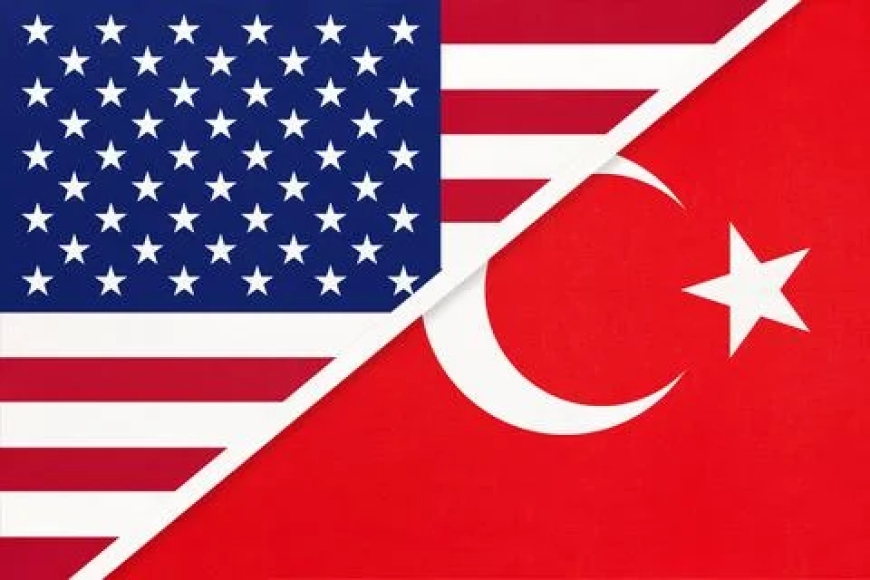The Caucasus Battlefield: How America and Turkey Stir the Flames of Conflict

By: A. Mahdavi
The aftermath of the Second Nagorno-Karabakh war has ushered in a temporary lull but this apparent calm appears to be little more than the eye of an approaching storm---one that could well escalate into a full scale war between Azerbaijan and Armenia. While dialogues and ceasefire agreements have momentarily diminished hostilities; the shadows of deeper geopolitical entanglements loom large threatening to upend any semblance of lasting peace. In truth the South Caucasus is fast becoming an arena where both regional powers and global giants vie for dominance each maneuvering for strategic advantage in a volatile and highly contested theater.
At the center of this turmoil lies the complex and unresolved conflict between Armenia and Azerbaijan over the disputed Nagorno-Karabakh region. Yet the enduring bitterness between these two countries; which has long been entrenched in the region's history--- has been significantly amplified by the intervention of external actors—great powers and regional players alike. The South Caucasus historically a site of local tensions has now become a new battleground manipulated by the geopolitical ambitions of the United States Turkey Azerbaijan and others who exploit the region's instability to pursue their own strategic interests.
At the forefront of this new geopolitical reality is Turkey which alongside Azerbaijan has played a significant and often destabilizing role. Its aggressive involvement in the South Caucasus----supported by military aid and overt political backing---has exacerbated tensions in the region. Turkey's ambitions in this theater are far from subtle its intervention is driven by a desire to project power and influence over the wider Caucasian and Central Asian space particularly as it seeks to revive the Ottoman Empire. In this context Ankara's alignment with Azerbaijan cannot be seen as an isolated act but rather as part of a broader orchestrated attempt to undermine Russia’s longstanding influence in the region and weaken Iran’s position.
In this volatile geopolitical stew; the United States also plays a dubious role. Under the guise of promoting democracy Washington's destabilizing policies in the South Caucasus have often been characterized by a selective application of moral rhetoric and strategic self-interest. The U.S. despite its professed neutrality has provided tacit support to Baku seeing the oil-rich country as an important counterbalance to Russian influence. This support has emboldened Azerbaijan's actions inflaming the already combustible situation. Moreover; the U.S. has deliberately condoned Turkey’s warmongering behavior instead offering it a free pass in exchange for broader geopolitical alliances.
The involvement of China adds yet another layer of complexity to this geopolitical conundrum. As an emerging global power China has recognized the strategic significance of the South Caucasus and has made clear its intentions to exploit the region for its own ambitions. China’s influence over Europe’s energy supply and transport routes places it in direct competition with the West particularly Turkey which seeks to assert its dominance in Central Asia. Through its Belt and Road Initiative [BRI] China has positioned itself as a key player in the region offering infrastructure investments and leveraging the South Caucasus as a crucial node in its broader geopolitical strategy.
Meanwhile India traditionally more focused on its rivalry with Pakistan has also recognized the South Caucasus as a new front in its geopolitical competition with China. India’s involvement though somewhat nascent is driven by the desire to counterbalance China’s growing influence in the region. Through arms deals and strategic alliances with Armenia India seeks to carve out a space for itself in the Caucasus. However New Delhi must tread carefully as it is acutely aware of the paramount importance of its relationship with Russia. The Indo-Russian partnership long grounded in mutual interests is of far greater value to India than any fleeting alliance with Armenia. Thus India must navigate the region’s shifting alliances with a degree of caution lest it jeopardize its broader strategic ties with Moscow.
Perhaps most importantly Iran---an historically significant power in this volatile region---must remain vigilant in safeguarding its interests. As a neighbor to both Armenia and Azerbaijan Iran is intrinsically linked to the stability of the South Caucasus. Iran’s historical and cultural ties to Armenia make it an essential actor in any future peace process yet it risks becoming sidelined if it continues to adopt a reactive rather than proactive approach. Should Iran fail to assert itself diplomatically it could find itself marginalized with grave consequences for its security and regional standing.
In conclusion the South Caucasus has morphed into a veritable chessboard upon which great powers and regional actors vie for dominance with the United States often casting a long shadow over the proceedings. As this new Great Game plays out it is the people of the South Caucasus who ultimately pay the price ensnared in the crossfire of power struggles that they did not initiate.
While Western powers notably the United States present themselves as champions of peace and democracy their actions reveal a troubling complicity in the ongoing conflicts. Rather than fostering genuine resolutions they have perpetuated an arms race that exacerbates tensions and pushes the region closer to a more catastrophic confrontation. The hollow rhetoric of concern from Washington stands in stark contrast to its strategic maneuvers which often prioritize geopolitical ambitions over the welfare of ordinary people.
The United Nations an institution increasingly marginalized in the face of these geopolitical games must take decisive action to prevent escalation. Yet without a meaningful commitment from powerful nations, namely the United States, to prioritize diplomacy over military posturing the South Caucasus is at risk of remaining a permanent flashpoint. In the end what looms larger than the games of global powers are a landscape increasingly defined by military conflict economic instability and the profound suffering of its people—all largely the result of international apathy and ambition.













































